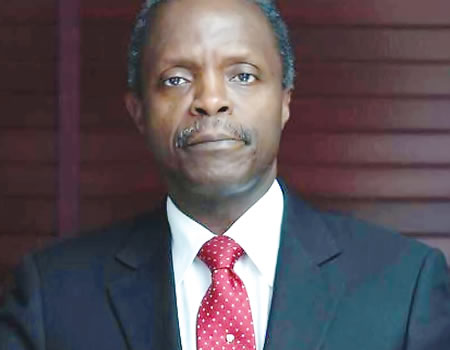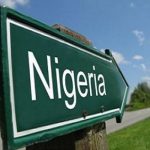SULAIMON OLANREWAJU reports that just as a bird which flies with one wing is predisposed to the hurling of the wind, Nigerian economy, which has largely depended on monetary policies in the past two years due to the near absence of properly articulated economic blueprint, has been at the mercy of the modulation of foreign exchange policies by the Central Bank of Nigeria (CBN).
Unlike most economies whose plinth are well thought-out economic and monetary policies deemed critical to stability and growth, Nigeria, in the last two years, has had to rely principally on monetary policies for the management of its economy. The absence of a clear-cut economic guideline left the Central Bank of Nigeria (CBN) with no other option than to deploy monetary policies to attempt a stemming of inflation, buoying local production, boosting Micro, Small and Medium Enterprises, encouraging agriculture and stimulating mining activities. While it is within the purview of the apex bank to target economic stability through the deployment of monetary instruments, the government is expected to counterbalance this with the use of fiscal and other economic policies. But the near absence of these in Nigeria has left the real issue of running the economy at the precinct of the CBN.
The price of crude oil had headed south ahead of the inauguration of President Muhammadu Buhari in May 2015. Similarly, the country’s foreign reserve was plummeting and the demand for foreign exchange was spiraling. Given the scenario, it was expected that the new administration would waste no time in emplacing growth-stimulating policies. The administration was also expected to properly adjust the naira to boost investors’ confidence in the economy. But nothing of the sort happened; the government went against the counsel of global institutions by insisting on a particular value for the currency.
Defending the position of the government in an interview granted Al Jazeera Television, President Muhammadu Buhari premised the decision of the government on the country’s poor infrastructure and import dependence.
According to him, “countries that play around with their currencies are countries that have enormous production capacity. They have factories in place, they have infrastructure in terms of power, and their communications and security are actually perfect.”
The president, who noted that Nigeria imports virtually everything, added that “If we don’t have the money for importing those things, what is the value in further devaluing the naira?”
With the decision of the government to leave the currency un-devalued, investors became doubtful about the government’s intention to do the needful to reset the economy. This vacillation pushed JP Morgan to delist the country from its Government Bond Index for Emerging Markets, a move which further put pressure on the naira. With this development, the CBN opted to defend the naira with the depleting foreign reserve but it could not satisfy the yearnings of millions of Nigerians who needed foreign exchange for a plethora of services. This made the apex bank to employ a seemingly unending stream of strategies of adjusting the foreign exchange policies. Thus, in the last two years, every economic activity in Nigeria has risen or fallen on CBN’s forex management ingenuity.
When the apex bank ruled out 41 items from accessing foreign exchange from the official quarters, the absence of a counterbalancing trade policy, which could increase local production to bridge the gap that the policy would create, forced the prices of such items to skyrocket. The increase in the prices of those items had a multiplier effect on the prices of other commodities. In addition, importers of those items had to look beyond official quarters to source their foreign exchange with the effect that the value of dollars and foreign currencies snowballed in the parallel market. The rising cost of accessing forex at the parallel market was enough motivation for those who got it at the official rate to divert to the parallel market, a move that subjected naira to further plummeting.
Commenting on the increasing wave of arbitrage in the country at the time, former CBN governor who is currently the Emir of Kano, Muhammadu Sanusi II, in a speech delivered at the 15th Joint National Council on Development Planning held in Kano, said, “We have created our own billionaires since 2015 from foreign exchange subsidy. They got the dollar at N197 and price their goods at N300… For instance, when the CBN was selling dollar at N197 and people were buying at N300, if I sit down in my garden and pick up my phone I would have enough people to call in the industry to get 10 million dollars at officials rate and sell at N300 and make a profit of over N1bn and if I do that four times in a year, for doing nothing I would have earned N4bn.”
In its effort to stop the slide of the currency, the CBN stopped the sale of forex to Bureau De Change (BDC) operators. But rather than bring reprieve to naira, it escalated its agony in the hands of other currencies. The CBN further tweaked its strategy by endorsing the decision of deposit banks to stop taking foreign currency deposits from banks customers. The banks had hinged their decision on the fact that the foreign currencies were idle resources that gave them no economic benefit.
The CBN, in a circular signed by Olakanmi Gbadamosi, Director of Trade and Exchange, had said it aligned itself with the position of the banks notifying their customers of their intention to stop accepting foreign exchange cash deposits from them.
According to the apex bank, “The Central Bank of Nigeria has considered the recent statements by Deposit Money Banks (DMBs) concerning the large volume of foreign currencies in their vaults and the decision to stop accepting foreign currency cash deposits into customers’ domiciliary accounts as a welcome development.
“Therefore, in its continued efforts to stop illicit financial flows in the Nigerian banking system which aligns with the anti-money laundering stance of the Federal Government, the CBN hereby prohibits from the date of this circular the acceptance of foreign currency cash deposits by DMBs.”
But rather than easing the forex situation in the country, these measures further compounded it. It became extremely difficult for those who needed medical care abroad to source foreign exchange. Parents whose wards were schooling abroad found it almost impossible to remit funds to their children. Those who traveled abroad on vacation found it herculean to pay for services rendered to them. So, the search for the greenback became intense and this caused the value of the dollar to soar while that of the local currency was pushed nearer to the abyss.
In his reaction to the issue of forex scarcity, President of the Food, Beverage and Tobacco Senior Staff Association (FOBTOB), Quadri Olaleye, had said, “The current situation has reached a pathetic level, because it seems all the employers in our sector are in competition with each other on who can lay off the most workers.
“Every company is now calling for a downsizing of the workforce, and this time under the guise of lack of foreign exchange due to the Federal Government’s recent policy on foreign exchange.
“We are aware that not all the raw materials used in our industry can be sourced locally. Where they can be found, they are mostly not available in commercial quantity.
“That is why it is imperative that the government, through the Central Bank of Nigeria, takes a second look at the policy on foreign exchange to avoid shutting down the companies in our industry.”
The gap between the official and unofficial rates of forex was also one of the reasons given by the Federal Government for jacking up the pump price of Premium Motor Spirit (petrol) from N87 to N145 per litre in 2016.
The Minister of State for Petroleum Resources, Dr Ibe Kachikwu, while addressing State House correspondents on May 11, 2016, had said, “the reason for the current problem (fuel scarcity) is the inability of importers of petroleum products to source foreign exchange at the official rate due to the massive decline of foreign exchange earnings of the federal government. As a result, private marketers have been unable to meet their approximate 50 per cent portion of total national supply of PMS.”
The hike in the price of PMS precipitated increase in the prices of commodities across the country. This, coupled with a lull in manufacturing activities and a decline in the citizens’ disposable income as a result of inflation occasioned by increased prices, resulted in the country sliding into recession in the second quarter of 2016 with the Gross Domestic Product (GDP) growth rate sliding further from -0.36 per cent in the first quarter to -2.06 per cent year-on-year.
In a report by the National Bureau of Statistics (NBS), the bureau said, “In the second quarter of 2016, the nation’s Gross Domestic Product declined by -2.06 per cent (year-on- year) in real terms. This was lower by 1.70 per cent points from the growth rate of –0.36 per cent recorded in the preceding quarter, and also lower by 4.41 per cent points from the growth rate of 2.35 per cent recorded in the corresponding quarter of 2015. Quarter on quarter, real GDP increased by 0.82 per cent.”
In her comment on the recession, a former Vice President of the World Bank, Mrs Oby Ezekwesili, said, “The record of the government today for timely and right actions on the economy is, however, so far not encouraging at all. For almost one year, the government delayed prime action on the fuel subsidy regime despite its aggravating import on fiscal imbalance.
“Over the same period, it delayed the right action on the exchange rate policy despite the deleterious effects that it was having on foreign reserves, the value of the naira, as well as on inflation. Before the government came on board, inflation level was nine per cent; today, inflation has doubled to more than 18 per cent. The greatest enemy of the poor is inflation. The greatest enemy of business is inflation. All you need in order to destroy the poor is total unstable price levels in an economy.”
As a response to the shrinking economy, the CBN announced on June 15, 2016, a floating of the naira.
While announcing the decision of the apex bank, the governor, Godwin Emefiele, said the CBN Monetary Policy Committee had voted unanimously to adopt a flexible exchange rate policy to restore the au¬tomatic adjustment proper¬ties of the exchange rate.” He, however, added that the bank would “retain a small window for funding critical transactions.”
This was expected to change the fortune of naira but it achieved anything but that. By the end of 2016, a dollar was going for as much as N500. In the same vein, both the third and last quarter of the year recorded negative growths.
However, at the turn of 2017, precisely on February 20, the CBN came up with another policy to rescue the naira.
In a press statement announced the policy titled New Policy Actions in the Foreign Exchange Market, the CBN said “In continuation of efforts to increase the availability of foreign exchange in order to ease the difficulties encountered by Nigerians in obtaining funds for foreign exchange transactions, the Central Bank of Nigeria (CBN) is providing direct additional funding to banks to meet the needs of Nigerians for Personal and Business Travel, Medical needs, and School fees, effective immediately.”
Shedding more light on this, the CBN said it “would immediately begin to provide foreign exchange to all commercial banks to meet the needs of both personal travel allowances (PTA) and business travel allowances (BTA) for onward sale to customers. All banks would receive amounts commensurate with their demand per week, which would be sold to customers who meet usual basic documentary requirements.”
The apex bank also stated that it “would meet the needs of parents, guardians and sponsors who are seeking to make payments of school and educational fees for their children and wards. Such payments must be made by commercial banks directly to the institution specified by the customer.
“The CBN would ensure that this process is as smooth as possible and that as many customers as possible get the foreign exchange they genuinely demand. This would also apply to customers seeking to make payments, or purchase foreign exchange, for medical bills and paid directly to hospitals.”
In addition, the CBN stated its resolve to come to the aid of manufacturing companies as well as SMEs in their bid to source forex.
Since the CBN came up with this policy, which has been facilitated by higher inflow of resources into the nation’s foreign reserves as a result of higher crude oil sales and improved prices, the value of naira has been on a consistent rise. From N520/$ in January, the exchange rate currently stands at about N360/$.
The value of naira is gradually shoring up because true to its promise the CBN has made it easy for all categories of people who need the greenback to have unfettered access to it. This has taken the wind off the sail of those working assiduously to make the naira the whipping boy of other currencies.
Although there have been complaints from global bodies, such as the International Monetary Fund, (IMF) to the effect that the government should free its hold on the currency, the CBN has always responded that it could not jeopardize the people’s well-being all in a bid to float the currency.
Economic Recovery and Growth Plan
After almost two years in office, the government, in March this year, unveiled its Economic Recovery and Growth Plan (ERGP), which should have been the second wing with which the economy should fly.
Talking about the plan, the Minister of Budget and National Planning, Senator Udoma Udo Udoma, said “The vision of the ERGP is one of sustained inclusive growth. There is an urgent need as a nation to drive a structural economic transformation with an emphasis on improving both public and private sector efficiency.
“This is aimed at increasing national productivity and achieving sustainable diversification of production, to significantly grow the economy and achieve maximum welfare for the citizens, beginning with food and energy security. This plan is a pointer to the type of Nigeria that the people desire in the short to medium-term, and encourages the use of science, technology and innovation to drive growth.
“It also provides a blueprint for the type of foundation that needs to be laid for future generations, and focuses on building the capabilities of the youth of Nigeria to be able to take the country into the future.”
The ERGP has three main objectives which are restoration of growth, investment in the people, and becoming a globally competitive economy.
The ERGP is said to be designed to achieve agricultural transformation and food security. It also aims to achieve improved foreign exchange inflow, 10 GW of power generation, becoming exporter of refined petroleum products, stable macroeconomic environment, infrastructural development and industrialised economy are other parts of the outlook Nigeria envisions by 2020.
The plan, which is a medium term instrument, will take off once the 2017 Appropriation Law gets presidential assent.
With the CBN achieving a form of stability in forex management, and the government eventually getting to generate a well articulated economic blueprint, the economy could be said to be set to operate at full steam and give the people a respite. But in the past two years, the economy has been gasping for breath because of the asphyxiating influence of the monetary policies devoid of appropriate fiscal policies.







